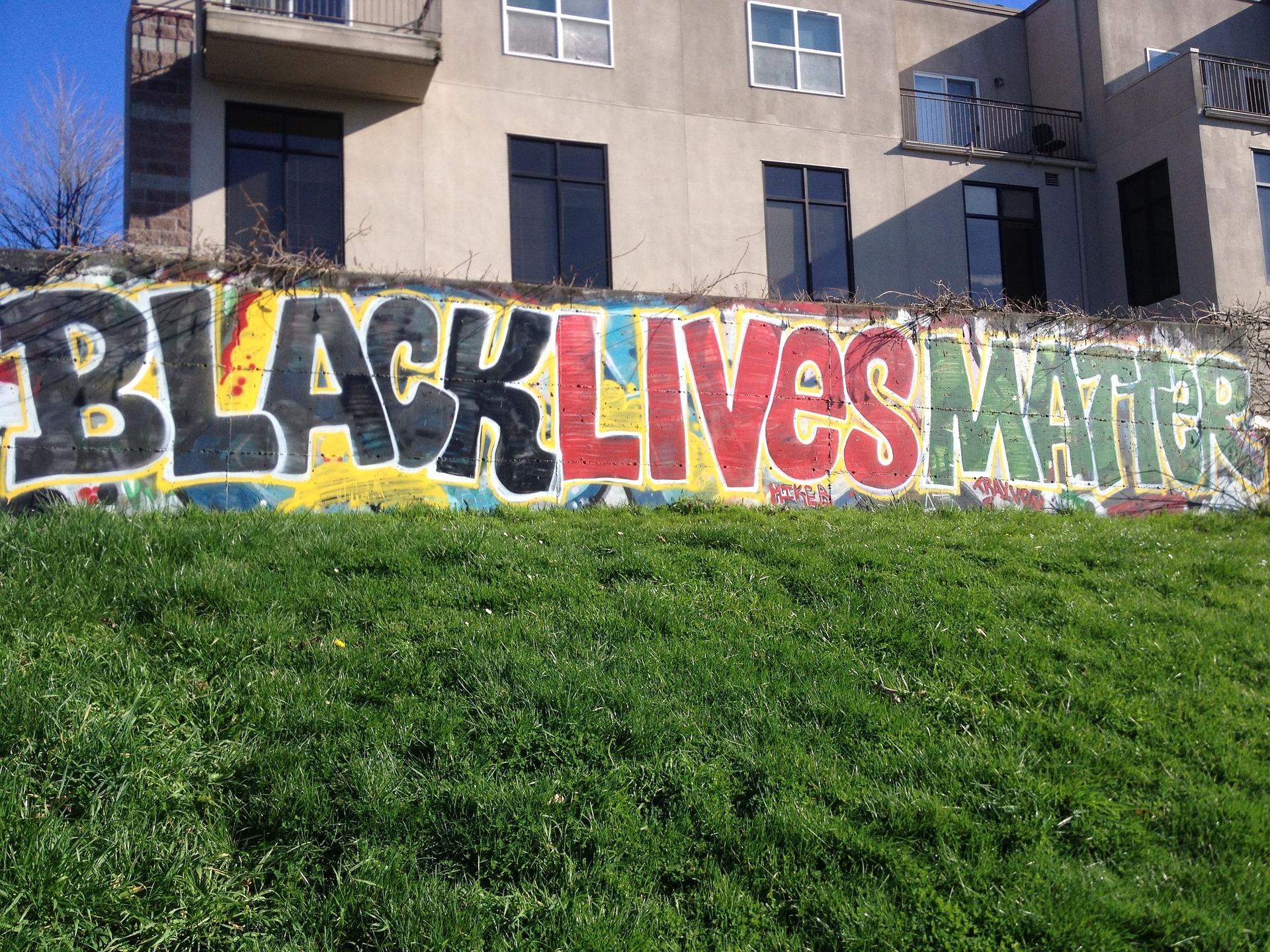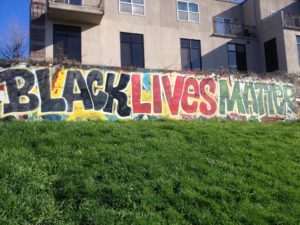
It was August 9, 2014, I sat in the backseat of my mom’s car. We had just picked up my sister from her friend’s house when I looked down at a text a close friend had just sent, “My friend was shot today and the police just left him in the street for hours.”
Later that evening it seemed every electronic device was exploding with news about riots. Ferguson was across the Missouri River from my home, but that night it felt like everything was happening in my backyard. In the following days national news portrayed North St. Louis as a war zone. There were continuous broadcasts saying “Michael Brown, an unarmed 18 year-old black male, shot multiple times.”

This was the first time I’d witnessed real racial tension. My St. Charles, Missouri neighborhood was mostly white and I grew up going to a mostly white, small farm school. People wore confederate flags as a badge of honor. Never in my life did I have a teacher who wasn’t white. This was just normal to me until what happened in Ferguson on that day and suddenly I became aware that my reality wasn’t everyone’s reality.
Non-white Americans make up less than 38% of the U.S. population but they comprised nearly 63% of unarmed individuals killed by police in 2015. As a white person, I will never know the prejudice that minorities feel. I certainly won’t ever know what it’s like to be an African American in the United States. As much as I can sympathize I will never have the target on my back that black Americans have.
The NAACP reports that black males are six times as likely to be incarcerated as whites. How is it possible that minorities make up the majority of those in prison? No, the answer is not “minorities break the law more” because statistically speaking, they don’t. 14 million whites are drug users, while only 2.6 million African Americans use drugs. Once again, this is disproportionately represented in our criminal justice system, as African Americans are sent to prison for drug offenses at ten times the rate as whites. And If you are an African American in prison for a nonviolent offense, good luck getting out because on average you’ll serve almost as much time as a white American will serve for a violent offense (58.7 months compared to 61.7 months). The United States may be the land of the free for white people, but it certainly isn’t for anyone else. This is why the Black Lives Matter movement is so incredibly important.
It was started by three African America women after the shooting of Trayvon Martin. The movement quickly gained popularity around the country through protest signs and trending hashtags on social media. Black people want their pain to be felt and their voices to be heard. This is not new. Before mass incarceration and police brutality became the new form of racism there was slavery, lynchings and Jim Crow. It’s obvious that white people haven’t been listening because if they had, many of the previously mentioned statistics would be a lot more proportionate.
So who do white people listen to? That’s right, other white people. It is the job of the majority, those who benefit from our societal structure, to fix it. As white individuals, we have privilege. We were simply born with it because of the way our schools focus on Eurocentric history and our media promotes Eurocentric beauty. We can’t control the privilege that comes with our skin color but we can use it to assist in mending our twisted society. By recognizing that we have privilege and supporting movements such as Black Lives Matter, we can attempt to bridge the gap that centuries of oppression have created.
No, this does not mean all white people are racist. By standing on the sidelines however and not helping to change our society, we are complicit in perpetuating racism. It should not just be up to people of color to fight for the world to recognize their struggles, it should also be something the white majority is willing to fight for too.